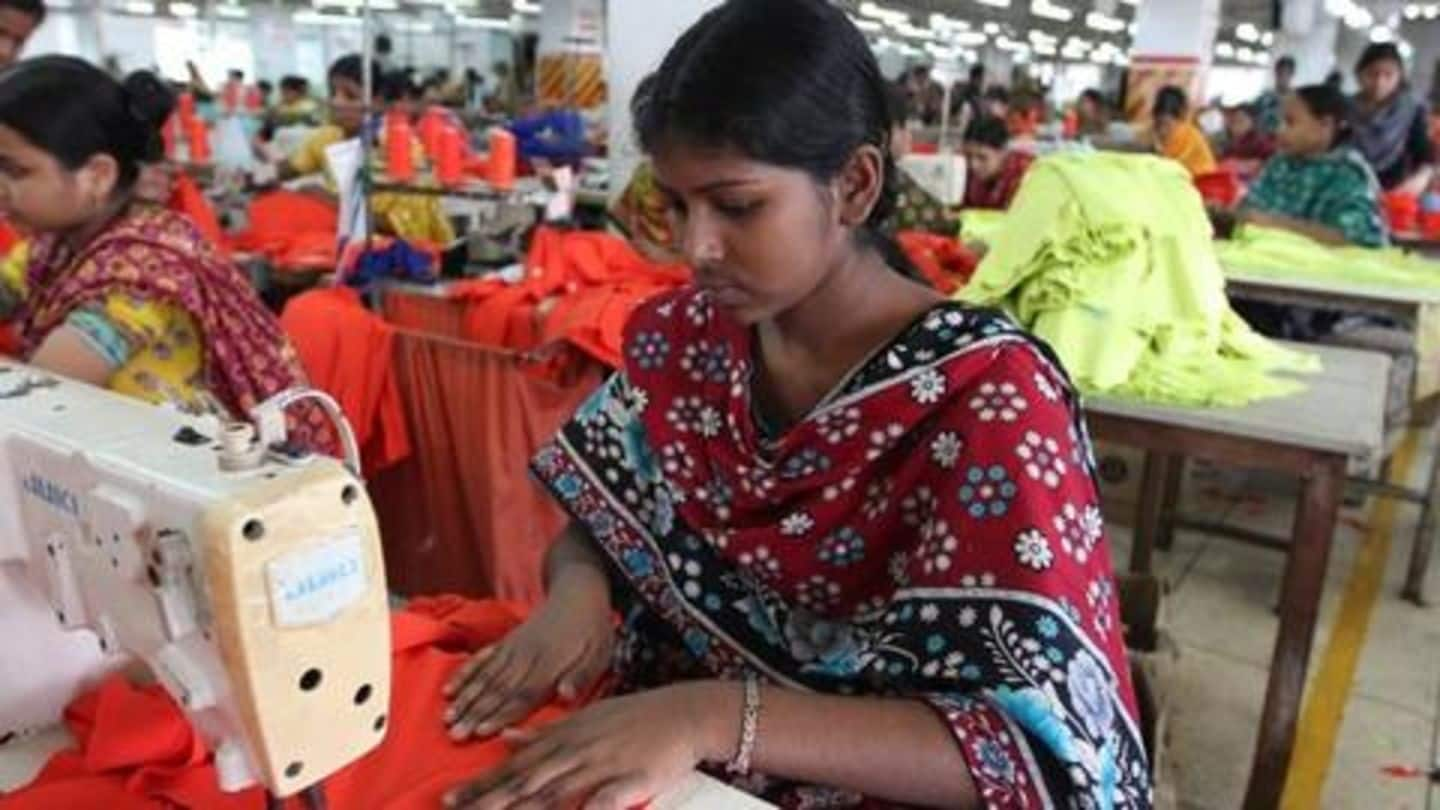
Factories found giving illegal 'painkillers' to women during periods
What's the story
Much has been said of the exploitation of labor in our capitalist world, but it's not enough given how toxic labor abuse can get. At garment factories in Tamil Nadu, female workers are being forced to take illegal medication for unbearable period pains. While this ensures factories squeezing out every ounce of productivity, the drugs have left a devastating impact on these women's health.
Details
Pills had no markings indicating brand, composition, expiry date
In an exposé, the Thomson Reuters Foundation revealed that all 100 seamstresses that they interviewed in Tamil Nadu's multi-billion dollar industry were forced to take unlabelled drugs to alleviate pain from menstrual cramps. Reportedly, the drugs weren't provided by medical professionals (as required by labor law) and had no markings to indicate brand, composition, expiry date. Consequently, over half of these workers' health suffered.
Information
Women workers' toilet breaks also strictly monitored
Further, according to the report, activists stated that women workers also had to follow strict schedules, which involved having their toilet breaks monitored. All this, so that India's garment industry could compete against Western brands. And you wonder why fast fashion is trash?
Effects
Side-effects include UTIs, miscarriages, depression
The pills were identified as non-steroidal anti-inflammatory drugs, similar to ibuprofen and Advil, which helped with period pains, but had harmful side-effects including urinary tract infections, fibroids, miscarriages, depression, etc. Naturally, workers were never warned about them. Dr. Nalina Kumari, who treated many garment factory and mill workers at her Dindigul clinic, said these pills cause "hormonal imbalances" and even "difficulty in conceiving".
Workers
One worker started experiencing white discharge, more pains
It was years before Sudha, a seamstress, realized how the pills she took during her 10-hour shifts impacted her health. Her menstrual cycle had gone haywire by age 17 and she was diagnosed with fibroids- non-cancerous growths in and around the uterus. Another worker, Kanaga Marimuthu, took pills for nearly a year and experienced white discharge, pains, and fever. Eventually, her periods stopped.
Quote
'Learned to ignore my aches,' says factory worker
Marimuthu (21) said she has taken time off work, adding, "I chose my health and pray every day that I will recover completely soon." However, Sudha cannot afford not going to work. She struggles with her gynecology visits due to impacts of the illegal pills and helps her mother, a ragpicker, clear her Rs. 1.5L debt. "I've learned to ignore my aches," she said.
Information
One worker shamed by male superior for addressing menstrual cramps
The stigma around menstruation also keeps some women from addressing period-related problems at work. Selvi, another seamstress, was earlier teased by a male supervisor about her menstrual cycles, which made her take the pills. Her health worsened and now she has "stopped fussing."
Factories
'Women have regular menstrual cycles before starting work'
Government data reveals that 40,000 garment factories and spinning mills across Tamil Nadu employ 3 lakh female workers (excluding workers unaccounted for). These include young women from poor, illiterate and marginalized communities. James Victor, head of labor rights charity Serene Secular Social Service Society, said women had regular menstrual cycles before they start working. However, with improper healthcare at exploitative factories, their health suffers.
How
How do factories manage doing this?
Occupational and environmental health official Manivelan Rajamanickkam said factories often violate India's Factories Act, which let qualified medical professionals to prescribe drugs. Additionally, factories often have a 'time keeper,' who monitors workers' hours, bathroom breaks, and also hands out medication, unauthorized. Workers, mostly comprising women aged 15-25, were made to swallow pills, without knowing what they were, in front of these supervisors.
Quote
Unaware of such medication: Top manufacturers' associations head
Selvaraju Kandaswamy, general secretary of the Southern India Mills' Association (SIMA) said factories conduct "regular blood tests to check hemoglobin levels and ensure nutritious food if workers have anemia," adding most workers who join are already malnourished. Tiruppur Exporter's Association head, Raja Shanmugam, said, "I'm not aware of any medication being given to workers for their periods and we definitely wouldn't support such practice."
Authority
'Factory bosses aware of drug side-effects; give them anyway'
Further, the government officials denied bearing any knowledge of such pills being provided to workers. Head of Ethical Trade Initiative, a group of 66 garment sector companies, Peter McAllister has recently heard of the issue, deeming it "clearly unacceptable". Women-led Tamil Nadu Textile and Common Labor Union General Secretary Jeeva Balamurugan said factory bosses are aware of pills' side-effects, but give them out anyway.
Action
Tamil Nadu to start collecting data on such health concerns
Rajamanickkam said they'll soon start conducting surveillance across factories. ETI, which includes top brands such as H&M, Mothercare, and Gap Inc., said it was investigating the issue. The state government also promised to monitor the health of garment workers after these findings were reported. It plans to launch a project to collect data on women suffering from such work-related health concerns. Long live capitalism?